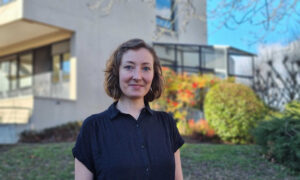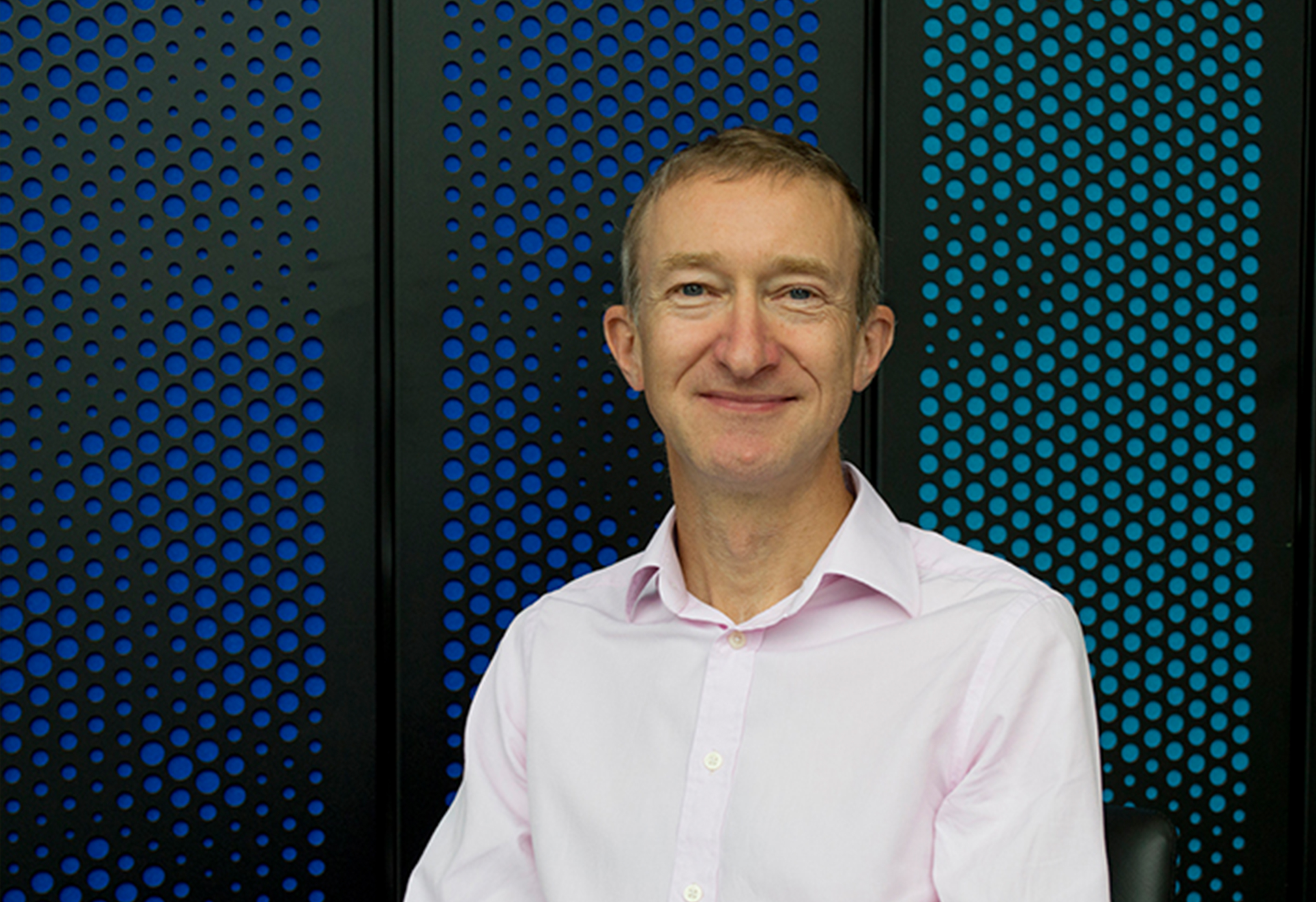
Read the latest Issue
EMBL-EBI’s chemistry data services, led by Andrew Leach, combine curiosity-driven science and pragmatic solution-finding for drug discovery

We spoke with Andrew about his new role as Head of Chemistry Services at EMBL-EBI, and about challenges for chemistry and open data in the drug-discovery communities.
Chemogenomics uses large datasets of compounds and their measured biological activities to tackle some of the key problems in drug discovery, such as helping to identify drug candidates and suggesting potential therapeutic targets. Large pharmaceutical companies have had access to large chemogenomics datasets for years, but thanks to the ChEMBL team in particular at EMBL-EBI, such data are now freely open and available to everyone.
One of the roles of EMBL-EBI is to facilitate change by providing the right tools and resources to help different science communities to embrace and benefit from open data. Historically, the chemistry community hasn’t been particularly focussed on open data, for a variety of reasons. Some of this is cultural and some is due to considerations such as intellectual property.
However, once a piece of work is ready to be placed into the public domain, for example by being accepted for publication, we should then consider how we can make the related data immediately accessible. That has been a feature of biology for a long time, but chemistry is not quite there yet. Clearly, there are a number of stakeholders that are required to make this change happen – it will be a collective effort, with roles for scientists, publishers, funders and resources like those at EMBL-EBI.
There are also opportunities to provide more data than would normally be included in a typical publication, including negative data. This could be of great value, and provide researchers with more comprehensive datasets.
There is always more we can do than we have time and resources available. To manage and develop our resources so they keep pace with current research needs, it is important that we understand the questions our users want to ask, and are clear about what we’re enabling scientists to do.
We also aim to combine curiosity-driven science and pragmatic solution finding because they’re equally important. Both require innovative ways of thinking about things.
I am very lucky to have a great team and to be taking on some resources that have a fantastic global reputation. I’ve also enjoyed learning about the science going on and the work people are doing on campus. I am looking forward to making stronger links with some of the groups and individuals more broadly at EMBL.
Prior to joining EMBL-EBI, I worked for many years in drug discovery, where I was involved in many different areas: computational sciences, structural biology, biophysics, mass spectrometry and more besides. I was involved in some exciting technologies and applying them to practical problems in drug discovery. This is similar to our work at EMBL-EBI, where we are always asking how we can evolve our services so they keep enabling researchers to answer new questions and solve new problems.
I would like to see our chemistry resources continue to grow in terms of the impact and influence they have on their respective communities. I’d like us to contribute actively to addressing practical questions and issues in drug discovery and other relevant fields. Strengthening the links between our resources and expertise and the clinic is a particular area where we would like to see further progress.
For me, innovation is about finding new ways to address real-world problems. It’s therefore important to me that everyone in the team is involved in, or at least is aware of, the practical applications of the work that they do, and to feel their contributions are valued.
The challenge is to find the right balance between having the time to do things that are new and different, and continuing to deliver on the core work that our users value and depend upon. For example, we are working hard now to improve the overall efficiency of some of our core processes, which will hopefully create more time to explore new and innovative areas.
How to avoid the traffic jams!
I’m very active, so sometimes exercise is a good way to solve a problem or come up with a new idea. But I also find that being able to spark ideas in discussions with other people is a good approach.
A long-standing problem in computational chemistry is the accurate and reliable prediction of ligand-protein binding affinities. After many years of research, we are now starting to see encouraging progress in that area. The broader question is: how much of drug discovery and development could be achieved using purely in silico, computational methods?
The challenges of how we will deal with our ageing populations appropriately are very wide reaching. How can we make it so that people everywhere can have a high quality of life for longer?
There are many routes to becoming a group leader. Mine has been rather different to many others at EMBL as I spent a long time in industry, most recently as Global Head of Biomolecular Sciences at GSK.
You don’t have to follow the traditional academic route to gain the necessary experience to reach group leader level. Industry and academia both have a lot to offer, and movement between the two has become more common. You should also keep your eyes open to possibilities beyond your immediate field.
You never know what might happen, what might come up in a chance conversation or meeting. Try not to pigeonhole yourself and take an interest in the bigger picture.
This post was originally published on EMBL-EBI News.
Looking for past print editions of EMBLetc.? Browse our archive, going back 20 years.
EMBLetc. archive